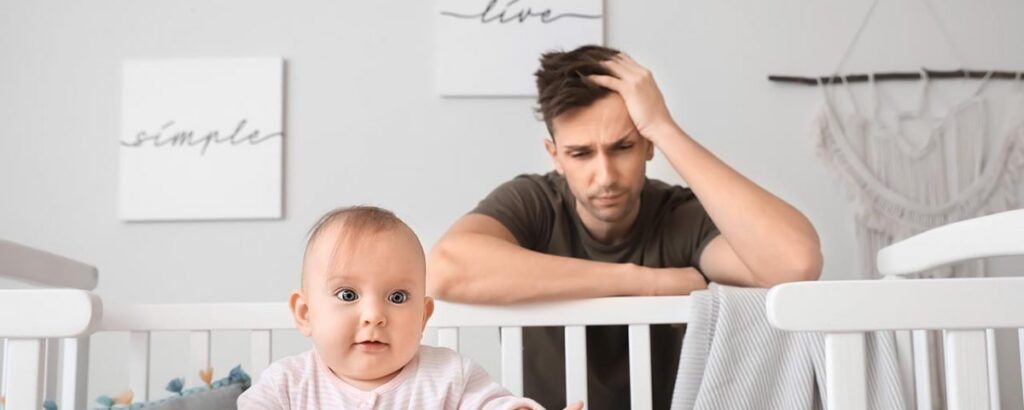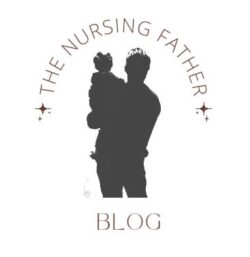Table of Contents
Fact:
- Postpartum depression (PPD) is a complex mix of physical, emotional, and behavioural changes that happen in some women after giving birth.
- PPD is a form of major depression that begins within 4 weeks after delivery.
- It occurs in women.
Truth:
- Fathers experience PPD too.
- It starts earlier in fathers, immediately or between 2-3 days after delivery.
- It can be as serious in men just as women.


This is not a sort of gender war but a wake up call to the realities around us. Depression is real and it can happen to anyone or come in any form. No one is immune from this subject matter.
PPD has been erroneously linked to women alone leaving out the men, but in truth men are as concerned as women are. Childbirth is a wonderful phenomena, and we can never thank our women, wives and mothers enough for this magnificent feat, and indeed they deserve all the recognition and care showered at them. While appreciating our mothers, it is time to beam the spotlight on fathers.
The psychological malaise encountered having gone through childbirth is often ignored or underplayed by the concerned and society at large. This generation needs to do more, we cannot keep having depressed parents struggling with the demands of raising proper kids in this time and age.
WHAT PPD MAY LOOK LIKE
According to mayo clinic and webmd, the symptoms of PPD are:
- Depressed mood or severe mood swings (anger or quick irritation)
- Excessive crying
- Difficulty bonding with your baby
- Withdrawing from family and friends
- Loss of appetite or eating much more than usual
- Inability to sleep (insomnia) or sleeping too much
- lower libido*
- Severe fatigue and sometimes headache
- Reduced interest & pleasure in activities you used to enjoy
- Fear that you’re not a good parent/partner
- Feelings of worthlessness, shame, guilt or inadequacy
- Trouble concentrating or making decisions
- Being uninterested in your baby or feeling like you’re not bonding with them
- Severe anxiety and panic attacks (fear of the unknown)
- Thoughts and fear of harming yourself or your baby
- Thoughts of death or suicide
Quite a list right? Very exhaustive. At least new moms are expected to to exhibit 50% of this symptoms before being diagnosed of experiencing PPD. Interestingly as vulnerable as mothers are to PPD, not all women experience up to 40% of the list above.
But I can tell you for free that (most) fathers regularly experience over 50% of these symptoms during the early stages on the arrival of their babies. I make bold to say I experienced at least 90% of these symptoms (in solitude and extreme secrecy).

DO MEN GET POSTPARTURM DEPRESSION TOO?
Yes boss, men can get postpartum depression, new fathers can experience postpartum depression, too and it’s pretty common. The same symptoms mothers with postpartum depression experience.
A study conducted on the prevalence of PPD among fathers showed that 10.4% of new dads experience postpartum depression, with the highest rates of depression having occurred between three and six months after their child’s birth.
Unfortunately, so many men are in denial, they laugh at the idea of PPD. Even if they accept it as a reality, they may be hesitant to talk about their struggles.
The society has sharpened many men to believe that they will seem weak if they express their symptoms, their fellow men may ridicule/mock them or may be separated from their babies.
But the reality is this: untreated postpartum depression can result in self-harm or harm to the baby; relationship problems can also occur or become more severe if the individual does not receive residential mental health treatment.
I have seen so many happy couples become suddenly toxic and exhibit subtle hysteria at each other since the arrival of their child(ren). Why so? Shouldn’t children be a source of joy rather than discord? Who knows maybe this was due to the effects of PPD? The failure to talk about it, leaving it untreated and unidentified might have festered.
My Experience
Just barely crossing the 20s into the 30s age range, I had the privilege of welcoming my first child. Whoopa, I’m now a dad, a young ideal and informed father I thought…very funny, I was about to receive a rude awakening.
My wife did not have a reason to stay long in the hospital so we left for home barely 24 hours after delivery.
The first 24 hours were the sweetest. First off seeing my seed whom we’ve been expecting for over 40 weeks in flesh and blood was overwhelming. The ecstasy, jumping, dancing, receiving of congratulatory messages, calling family and friends on the arrival of the bundle of joy and the likes took centre stage.
My dose of PPD came exactly 2 days after we got home. My wife and I had decided not to vacate our bedroom for any of our parents and that our newborn will sleep with us.
Prior to the baby’s arrival, I quit my job and had a cool stash of cash I felt can sustain my family and I till I landed another job – another job never came so I was a stay home dad (story for another day).
Though I was not cashless, I could see the bleak future of my financial reservoir if something was not done quick; the baby came anyways. No shaking, we move.
Also my wife was new at her job so she won’t be on salary or bonus throughout the duration of maternity leave.
For starters, the fussing, crying, wimping, sleepless nights, constant diaper changes, and frequent feedings was bursting our brains. Before you know it my wife was withdrawn and would often take a bathroom break only to be back with glassy eyes and running nose. Oluwa wetin day occur!!!
Our parents had a list of things they expected to be put in place for the teeming visitors and well wishers and also before the day of naming ceremony, so my attention was always needed plus I was practically home all through.
The baby had mild jaundice and so we were forced to return to the hospital for checkups, it was on this trip my wife opened up and started crying.
The incessant bathroom breaks were actually tear breaks. Why? She was overwhelmed, stressed and chief of all, she was not lactating – baby was not breastfeeding.
Here I am, with a wife clearly exhibiting PPD, cash tight, out of job, expected to be there for my family and put up a straight face like nothing happened….and yes that I did to the best of my ability, I must confess, my stress level was at an all time high. A wrong prick or pinch will blow me open, but luckily that never came.
Folks I need no diagnosis, I suffered from full scale Postpartum Depression!
CONCLUSION
To conclude this piece Elizabeth Wurtzel once said and I concur – A human being can survive almost anything as long as he sees the end in sight. But depression is so insidious, and it compounds daily, that it’s impossible to ever see the end.
Think of the future, sure does help. The start may be rough but it keeps getting better as the days go by. Another twist to it is looking at the child and having a sense of security, purpose, responsibility and assurance that if you do this right you tomorrow is assured.
You know we know you just have to cope right? But not just coping, thriving in this fatherhood thing is the goal – that is how I coped.
Join me in the part 2 of this piece (PPD: how I coped) to have an idea of the chief causes off PPD.
Different folks different strokes, knowing is the first step in healing.
See you soon, cheers!
The Nursing Father.
NB: Tag fathers, or anyone who probably has a story to share, we are willing to seeing your comments. let’s share.
Sources
- Postpartum Depression – Mayo Clinic
- Postpartum Depression – Debra Fulghum Bruce, webmd 2020
- NIH- Prenatal and Postpartum Depression in Fathers and Its Association With Maternal Depression
- Postpartum Depression in Men – Banyan Mental Health
- Becoming a new parent is challenging – and fathers need support too – Rachel Leonard, Queen’s University Belfast and Mark Linden, Queen’s University Belfast.
- Postpartum Depression Causes, Risk Factors, and Prevention Strategies – Peg Rosen and Randi Hutter Epstein, M.D.





This piece is super encouraging!
Very original????
Thank you!
I’m staying tuned for more of this. Thanks Nursing Father. Thanks
[…] called fatherhood for those who are already fathers you will agree with me– e.g. Omugwo 101, Postpartum stress, breast feeding, teething, child etiquettes…list is endless […]